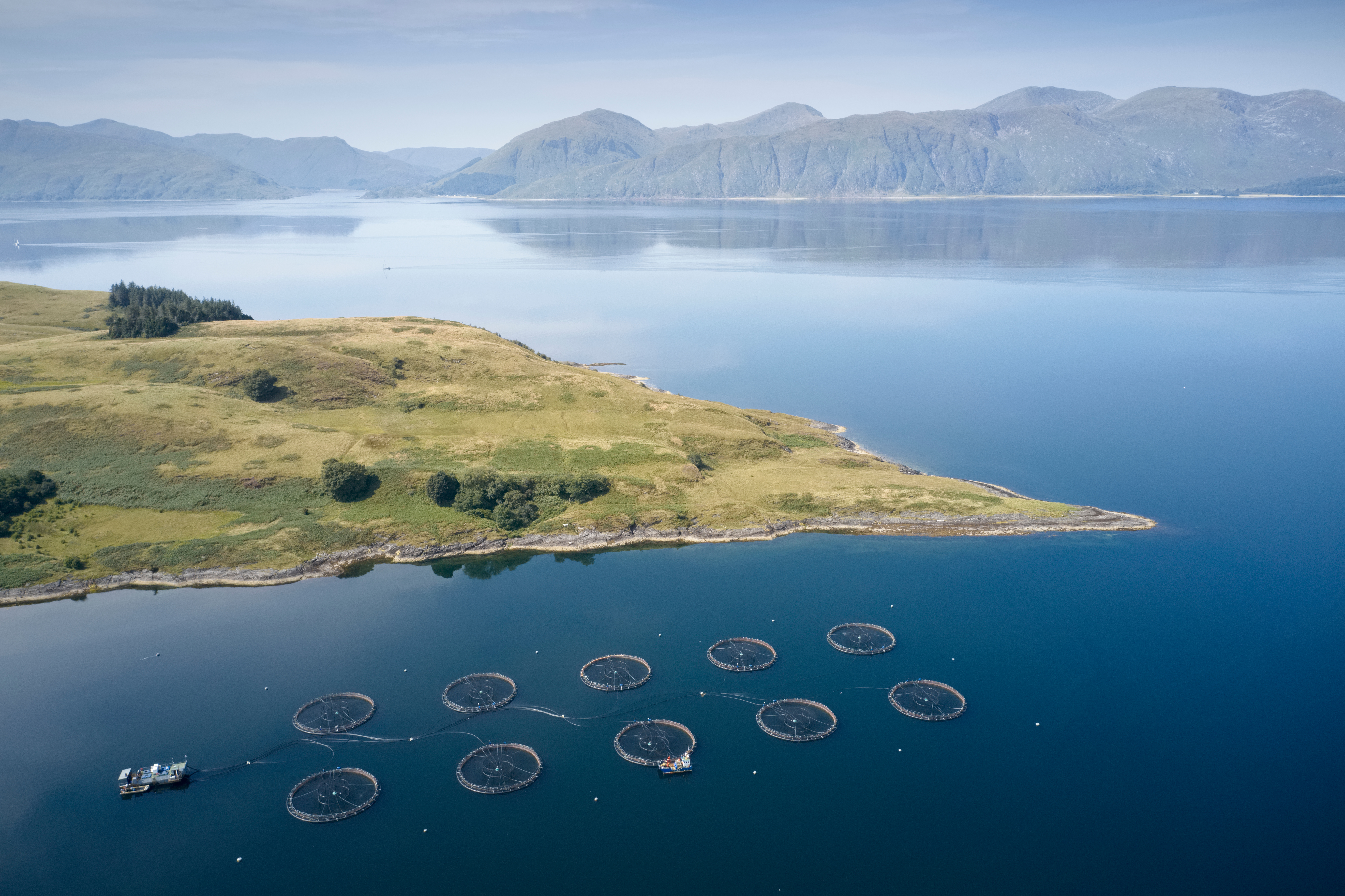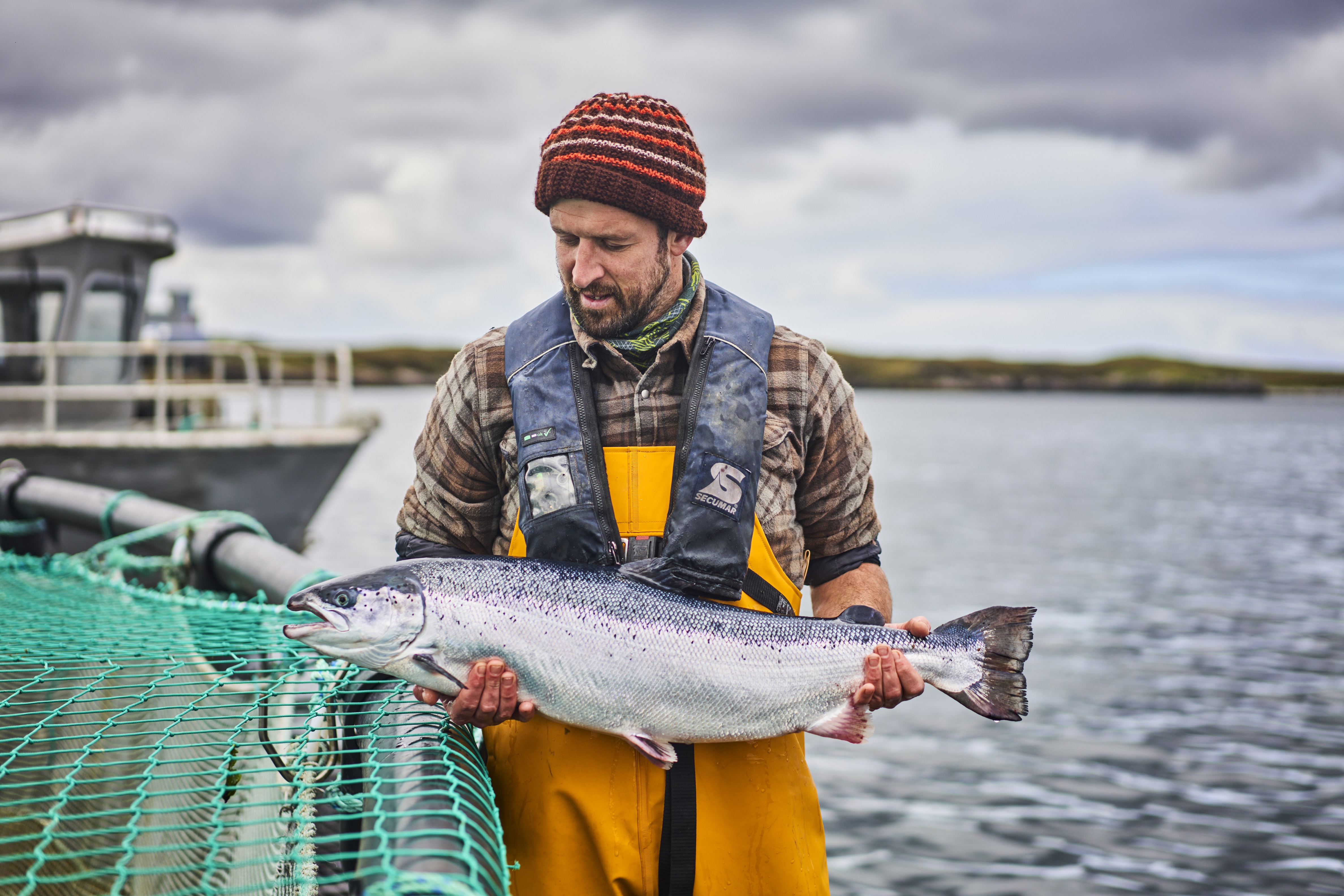The great masquerade

Salmon Scotland Chief Executive Tavish Scott addresses the blurring of the lines between activism and journalism, and highlights the desperate tactics of anti-salmon campaigners
Our sector has hundreds of brilliantly talented biologists, veterinarians, hatchery technicians and environmental scientists who deliver the highest standards of animal welfare anywhere in the world.
The innovation that has developed in Scottish aquaculture means that we can lend our expertise to the vital fight to save the wild salmon from extinction – and that’s precisely what we are doing.
In February, the latest phase of our fund to help save wild salmon by restoring habitats, providing protection from predators and encouraging river restocking schemes opened for applications.
This is more important than ever following the decision by the International Union for Conservation of Nature (IUCN) to put Atlantic wild salmon in Great Britain on its endangered list in 2023.
What the published data found is that this decline is steepest in Wales and England. The rates of decline since 2010 were put at 76% in England, 86% in Wales and 74% in Scotland. And the challenge is particularly acute on the east coast of Scotland.
The fact that wild salmon numbers are declining faster in areas where there are no salmon farms (and never have been) is an inconvenient truth for activists who want to shut down our sector.
If you visit the Salmon and Trout Association Limited website – now calling itself WildFish – it will tell you about the IUCN decision, but not about the variations within Great Britain.
The website highlights high pollution levels in English rivers as a reason for the salmon population crisis in England – and yet when it comes to Scotland, it puts nearly all its efforts into attacking hard-working salmon farmers.
The truth about WildFish is that it masquerades as a conservation organisation – when it is nothing of the sort.
It is a simply a well-funded but ill-informed pressure group headquartered in Hampshire devoted to making 12,500 people in Scotland redundant amid a cost-of-living crisis, destroying livelihoods, decimating rural communities and taking opportunities away from young Scots.
Just imagine if, instead of campaigning for farmers to lose their jobs, it put the £900,000 it spent in 2022 into direct measures to save wild salmon.
That job has fallen to us instead, with the Wild Fisheries Fund set to invest £1.5m in doing this.
The misrepresentation of both our sector and WildFish’s own aims and objectives is shameful.
Its underhand tactics even extend to pretending that its very own campaign – Off the Table – is a separate organisation, using this to bulk up signatories for a recent publicity stunt.
Never mind the fact that this campaign, led by a former salmon farming vet turned activist, has failed miserably and salmon’s popularity in the UK is rising. This is an attempt to deceive both the public and independent certifiers. However, perhaps we shouldn’t be surprised that activists resort to such gutter tactics.
It’s naturally disappointing, though, when this smoke and mirrors routine makes its way into the mainstream media.

Press clipping from The Guardian
Take a recent article in The Guardian, for example, which regurgitated a WildFish press release.
Salmon Scotland was given little over one hour to respond – and the tone of the article had, of course, already been decided before we had chance to reply.
The letter accompanying the press release carried the usual logo parade of organisations and “charities”, many of which are one-person bands with a logo, and “Russian doll” organisations such as the Coastal Communities Network, which contains other activist groups already listed.
Even anti-salmon farming organisations on the other side of the world, in Chile, California and British Colombia, were listed.
Easy answers – but wrong
Scotland and the UK are fortunate to have a vibrant, free media and many brilliant journalists. With newsrooms under huge financial pressure and fewer staff reporters, however, it has become easier for campaigners who pass themselves off as conservationists to target freelancers looking for a pay cheque or cultivate writers who personally sympathise with their views – often blurring the lines between balanced journalism and opinion as a result.
Thoroughly discredited activists are given a platform when they have zero expertise.
To give just two examples, first a recent documentary on Netflix contained a segment with someone who is simply an anti-salmon activist, with no relevant qualification, and featured a fish that looked unlike anything anyone who has ever purchased salmon would recognise.
And, not so long ago, we were asked to comment on claims from a musician that farm-raised salmon was affecting wild salmon levels in the River Spey.
An understanding of Scottish geography, or just a cursory glance at Google Maps, would show how this is simply impossible.
The focus of the article then shifted to attack our sector from a different angle because even the journalist realised he couldn’t stand up these nonsense claims.
The team at Salmon Scotland works hard to ensure untruths are not reported or we secure corrections and commitments that errors won’t be repeated when this does happen.
The only positive thing I can say about this group of activists is that they are a determined and highly motivated bunch, and they have some allies in the media – even if most of the editors I regularly meet recognise our strong Scottish success story.

Loch Duart worker on farm with salmon
I am also grateful to everyone at Fish Farmer and other trade publications who provide factual industry news about our sector.
I know that the attacks in the mainstream media can affect morale and the mental health among our amazing workforce, who passionately care for the fish in their care. Your hard work rarely gets the recognition it deserves – and I share your frustration.
As you know, we are subjected to independent audits on an almost daily basis to confirm our transparently high levels of animal welfare, but of course this isn’t considered “news”.
So it is testament to your integrity and dedication that you continue to go out in extreme weathers, at all times of day and night, to rear the best salmon in the world. Thank you.
Rest assured that the public appetite for salmon in Scotland and the UK continues to grow, international demand is rising in new markets such as Asia and we have fantastic backing from both the Scottish and UK governments, as well as the leadership of opposition political parties.
We will continue to champion Scottish salmon and tell the positive story of our sector.

